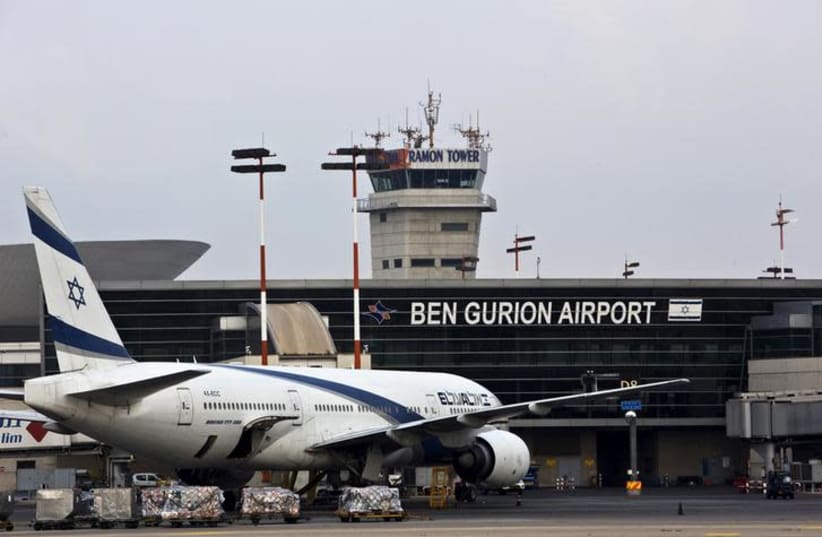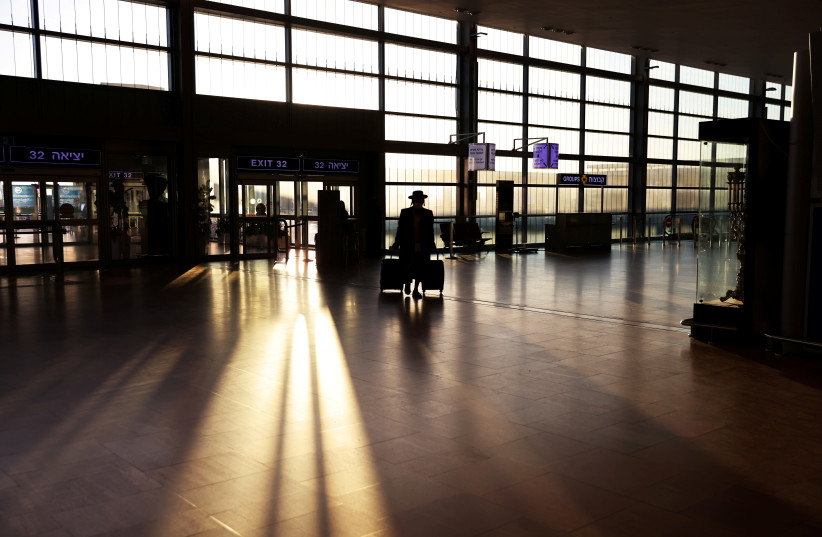The regulation of profiling computer programs used by law enforcement for detecting drug smuggling in Ben-Gurion Airport was discussed by the Constitution, Law and Justice Committee on Sunday morning following reports that there were no legal guidelines in place.
Law committee chairman Simcha Rothman criticized the police for taking five months to respond to inquiries about the legal details of their profiling system. Rothman's initial request came in response to a Calcalist article published in November.
The police use a program to help analyze and flag luggage, but decisions are ultimately at an officer's discretion, said police legal advisor Gilad Bahat.
"There are more times that the policeman does not listen to the system than listens to it," said Bahat.
Rothman and other members of the committee sought to understand the role of computer programs that analyzed people and flagged them as suspects. The committee argued that it was a problem that there were parameters used to analyze people that political leaders were unaware of.
Israel Democracy Institute lawyer Amir Kahane told the committee that artificial intelligence is based on inputed data, which could include biases on skin color, national origin and other characteristics.
There needed to be parliamentary oversight over the means of analysis and data used by automated systems, Religious Zionist Party MK Rothman said.
Rothman asked police representatives for data on how many identifications are made with the program, in particular how many false positives and negatives there were. He also wanted to know how often people were flagged in general, and if it was effective and efficient compared to only using human analysts.
"The Israel Police should be accountable for the quality of the system and the number of tests and its statistics," said Rothman. "We are not asking to reveal confidential information of the system, but to receive more important details in service of parliamentary supervision and control for the rights of the citizens of Israel."
The police said that they would provide data to the committee. The police representatives said that they wanted to avoid a situation in which everyone who came through the airport had their bags checked, and for both the sake of efficiency and invading privacy rights as little as possible some automation was needed. Bahat said that in 2023 dozens of kilograms of different drugs had been seized entering Israel.
Likud MK Tali Gottlieb expressed concern about racism and discrimination in the law enforcement process. The committee noted that in some cases that profiling may work, and it does have societal impact. Bahat said the decisions made by officers were non-discriminatory.
Hadash MK Ofer Kasif said "we know that profiling is used" against Israeli-Arabs and Palestinians, but also raised concerns in creating an panopticon-like conditions. The panopticon is a type of prison in which cells are arranged so that a single concealed guard could be looking at any prisoner, but it is unknown where they are looking at any given time. The concern about panopticon conditions in society is that everyone feels as if their privacy is constantly invaded and all that they are under the scrutiny of authorities at any given moment.
Rothman explained to the committee how under the law the threshold of suspicion for searching people entering the country was lower than for people in the street. On the street a reasonable basis of suspicion is required, but not in the airport. The committee noted that security profiling was not under scrutiny, but operations countering criminal activity.
"The power of the police is great and the answers that we received here today aren't enough to remove the cloud of suspicion over the use of profiling programs in Ben-Gurion airport," said Rothman. "We need to be sure that the use of artificial intelligence technologies is done in a proportionate and reasonable manner."

